
Fashion is a powerful form of self-expression. The clothes we wear do more than just cover us—they communicate aspects of our personality, values, and even our mood. Through the lens of fashion psychology, every outfit choice sends a message, whether consciously or subconsciously, to both ourselves and those around us. In this blog, we’ll explore the fascinating ways in which your clothing choices reflect your inner world and shape how others perceive you.
The Psychology Behind First Impressions: What Your Outfit Says in Seconds
It only takes a few seconds for someone to form an opinion of you, and your outfit plays a significant role in that snap judgment. Whether you’re meeting someone for the first time or walking into a room full of people, what you wear can immediately influence their perception of you. For example, a well-tailored suit might suggest professionalism and confidence, while a casual, laid-back outfit could signal creativity or approachability. The key is to be intentional with your clothing choices—dress for the impression you want to make, whether it’s in a professional setting, social gathering, or casual meetup.
Color Psychology: Decoding the Emotional Impact of Your Wardrobe
Colors evoke emotions and influence how we feel and how others feel about us. For instance, red is often associated with power and passion, making it a go-to choice for those who want to stand out or make a bold statement. Blue, on the other hand, is linked to calmness and reliability, making it a great choice for professional settings. Your choice of color can affect not only your mood but also how others respond to you. By understanding the emotional impact of different colors, you can use your wardrobe to project confidence, approachability, or any other vibe you want to convey.
Power Dressing: How Clothing Can Boost Confidence and Authority
The concept of power dressing is all about using your wardrobe to enhance your confidence and assert authority. Whether it’s a well-fitted blazer, a sharp pair of heels, or a statement accessory, certain pieces can make you feel invincible. Dressing in a way that makes you feel powerful can translate into how you carry yourself, influencing how others perceive you. The goal isn’t necessarily to wear formal attire all the time, but to find pieces that make you feel strong and capable, whether in the workplace or any other aspect of your life.
Casual or Formal? The Subtle Social Signals in Your Clothing Choices
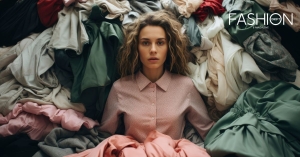
Your decision to dress casually or formally sends subtle signals about your intentions and how you view a particular situation. For example, dressing formally might communicate respect for a business setting, while casual attire could suggest that you’re comfortable and relaxed. However, these choices are often context-dependent. Sometimes, breaking the mold and opting for an unexpected outfit can make a lasting impression and showcase your individuality. A great fashion tip is to understand the social cues of your environment and balance them with your personal style to create an impression that truly reflects who you are.
The Influence of Culture and Identity on Fashion Choices
Our clothing choices are often shaped by our cultural background and personal identity. Traditional garments can represent a deep connection to one’s heritage, while more contemporary styles might reflect a desire to embrace global trends. Fashion becomes a tool to express who we are and where we come from. Whether you’re incorporating cultural elements into your daily wardrobe or blending styles from different influences, your clothing can tell a rich story about your identity.
Fashion as a Form of Self-Expression: How Your Style Reflects Your Inner World
Your style is a window into your personality and how you see the world. Minimalist fashion might suggest a preference for simplicity and clarity, while bold patterns and bright colors could reflect a more adventurous or creative spirit. Your clothing choices allow you to express parts of yourself that words might not fully capture. This form of self-expression is unique to each individual, and understanding how your style reflects your inner world can be empowering.
The Impact of Trends on Personal Identity: Following the Crowd or Standing Out?
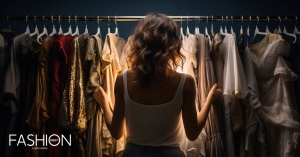
Fashion trends come and go, but how you engage with them can say a lot about your personal identity. Some people love to embrace the latest trends, seeing them as a way to stay current and express themselves in new ways, as often highlighted in the best fashion magazine. Others prefer to stick with a signature style that sets them apart from the crowd. There’s no right or wrong approach—it’s about finding what works for you. Whether you’re a trendsetter or someone who marches to the beat of their own drum, your choices reflect your values and how you wish to be seen.
The Role of Comfort in Fashion: Balancing Style with Well-being
While fashion is often seen as a form of self-expression, comfort plays a crucial role in how we feel in our clothes. If you’re constantly adjusting or uncomfortable in what you’re wearing, it can affect your confidence and overall well-being. Fortunately, comfort doesn’t have to come at the expense of style. With the rise of relaxed and versatile fashion trends, it’s easier than ever to find outfits that make you look and feel good. Prioritizing comfort in your wardrobe can lead to a more positive relationship with fashion and your self-image.
Fashion and Body Image: How Clothing Choices Reflect Self-Perception
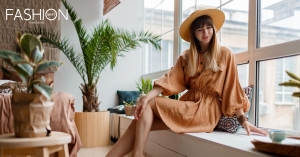
Your clothing choices can have a significant impact on how you feel about your body. Wearing clothes that fit well and flatter your body shape can boost your confidence and improve your self-perception. On the other hand, clothes that don’t make you feel good can exacerbate insecurities. Understanding how different styles, cuts, and fabrics work with your body type can help you make choices that enhance your self-esteem. Ultimately, fashion should be about feeling good in your own skin and using your wardrobe to reflect that confidence.
The Future of Fashion Psychology: Predicting Trends Through Behavioral Insights
As we look to the future, fashion trends are increasingly influenced by psychological insights into consumer behavior. With a growing emphasis on sustainability, individuality, and authenticity, the fashion industry is shifting towards more meaningful and intentional choices. Understanding these trends, as highlighted in leading lifestyle magazines, can help you navigate the evolving landscape of fashion and make choices that align with your values and aspirations. Whether you’re staying ahead of the curve or sticking with timeless classics, your fashion journey is a reflection of who you are and who you aspire to be.
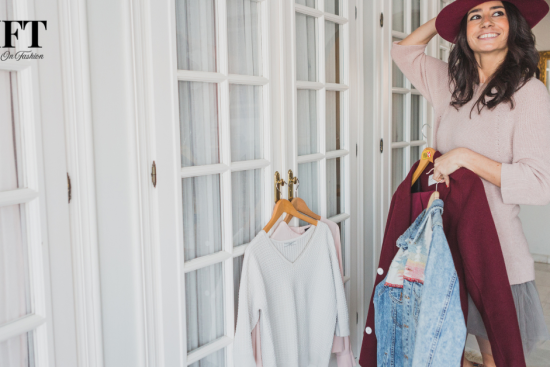
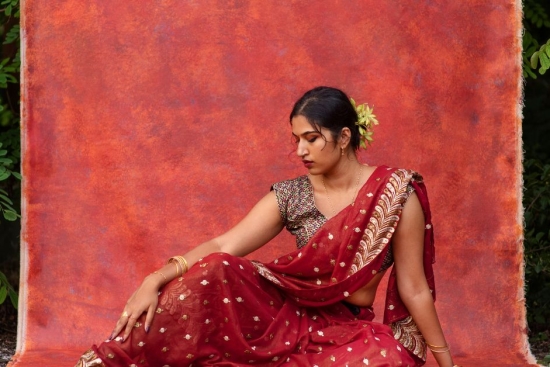
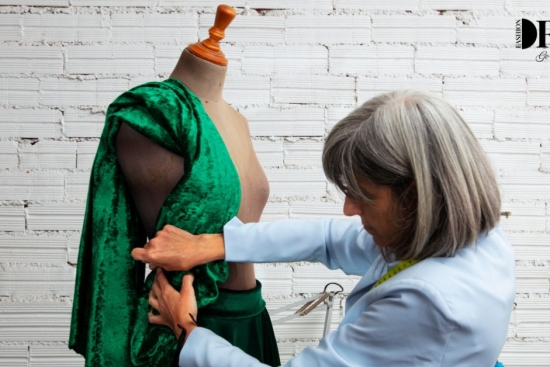



Comments (29)
srksays:
12/12/2024 at 16:07abc
Aravind Donakantisays:
23/12/2024 at 11:31Your clothing choices reflect your personality, mood, and how you want to be perceived by others. Fashion psychology reveals that what you wear can influence your confidence, behavior, and even how you interact with the world.
Ritviksays:
21/01/2025 at 18:55Great job on your blog post! The information was presented in a concise and digestible manner. I appreciated the relevant examples and the actionable advice you provided. click here to explore more on this subject.
Ramkhiladisays:
25/01/2025 at 12:19आपके ब्लॉग पोस्ट पर शानदार काम! यह स्पष्ट था कि आपने सामग्री को तार्किक तरीके से संरचित करने में प्रयास किया। मुझे आपके स्पष्टीकरण की स्पष्टता और आपके द्वारा चर्चा किए गए व्यावहारिक अनुप्रयोगों का आनंद आया। अधिक जानने के लिए, यहाँ क्लिक करें।
Brianvoksays:
29/01/2025 at 15:03comprare farmaci online all’estero: Farmacie online sicure – Farmacie online sicure
acquisto farmaci con ricetta
ClintInicksays:
31/01/2025 at 08:25https://farmabrufen.shop/# FarmaBrufen
farmaci senza ricetta elenco
NathanHussays:
31/01/2025 at 08:38farmacia online senza ricetta [url=https://farmaprodotti.shop/#]Farmacie online sicure[/url] farmacia online senza ricetta
Patricksnubysays:
31/01/2025 at 12:16Security measures ensure a safe environment.: taya365.art – taya365
Lannypersays:
31/01/2025 at 12:23A variety of gaming options cater to everyone.: phtaya login – phtaya.tech
DavidAbonssays:
31/01/2025 at 13:44https://phtaya.tech/# The casino atmosphere is thrilling and energetic.
Slot machines feature various exciting themes.
Williamamushsays:
31/01/2025 at 15:26The poker community is very active here. http://phmacao.life/# Resorts provide both gaming and relaxation options.
JosephLibsays:
31/01/2025 at 16:27taya777 app [url=http://taya777.icu/#]taya777 register login[/url] Slot tournaments create friendly competitions among players.
Patricksnubysays:
31/01/2025 at 17:10Security measures ensure a safe environment.: taya777 register login – taya777 app
DavidAbonssays:
31/01/2025 at 17:46https://phtaya.tech/# Poker rooms host exciting tournaments regularly.
Some casinos have luxurious spa facilities.
Williamamushsays:
31/01/2025 at 20:26A variety of gaming options cater to everyone. http://jugabet.xyz/# Los jugadores deben conocer las reglas.
DavidAbonssays:
31/01/2025 at 21:41http://taya777.icu/# Loyalty programs reward regular customers generously.
Some casinos have luxurious spa facilities.
Lannypersays:
31/01/2025 at 22:05Es comГєn ver jugadores sociales en mesas.: jugabet – jugabet chile
Patricksnubysays:
31/01/2025 at 22:06Los casinos reciben turistas de todo el mundo.: winchile – winchile.pro
JosephLibsays:
01/02/2025 at 00:58taya777 login [url=http://taya777.icu/#]taya777.icu[/url] The casino industry supports local economies significantly.
Williamamushsays:
01/02/2025 at 01:21Cashless gaming options are becoming popular. https://taya365.art/# The thrill of winning keeps players engaged.
DavidAbonssays:
01/02/2025 at 01:34http://taya777.icu/# Many casinos offer luxurious amenities and services.
The casino experience is memorable and unique.
Lannypersays:
01/02/2025 at 02:55Game rules can vary between casinos.: phmacao com – phmacao club
Patricksnubysays:
01/02/2025 at 02:58Cashless gaming options are becoming popular.: taya777 register login – taya777
DavidAbonssays:
01/02/2025 at 05:13http://taya777.icu/# Slot tournaments create friendly competitions among players.
Game rules can vary between casinos.
Williamamushsays:
01/02/2025 at 06:01Some casinos have luxurious spa facilities. http://taya365.art/# The casino scene is constantly evolving.
Lannypersays:
01/02/2025 at 07:27Poker rooms host exciting tournaments regularly.: taya777 login – taya777 login
Patricksnubysays:
01/02/2025 at 07:33Promotions are advertised through social media channels.: taya777.icu – taya777.icu
DavidAbonssays:
01/02/2025 at 08:42https://phtaya.tech/# Casino promotions draw in new players frequently.
Casino promotions draw in new players frequently.
JosephLibsays:
01/02/2025 at 09:04phtaya casino [url=https://phtaya.tech/#]phtaya login[/url] High rollers receive exclusive treatment and bonuses.